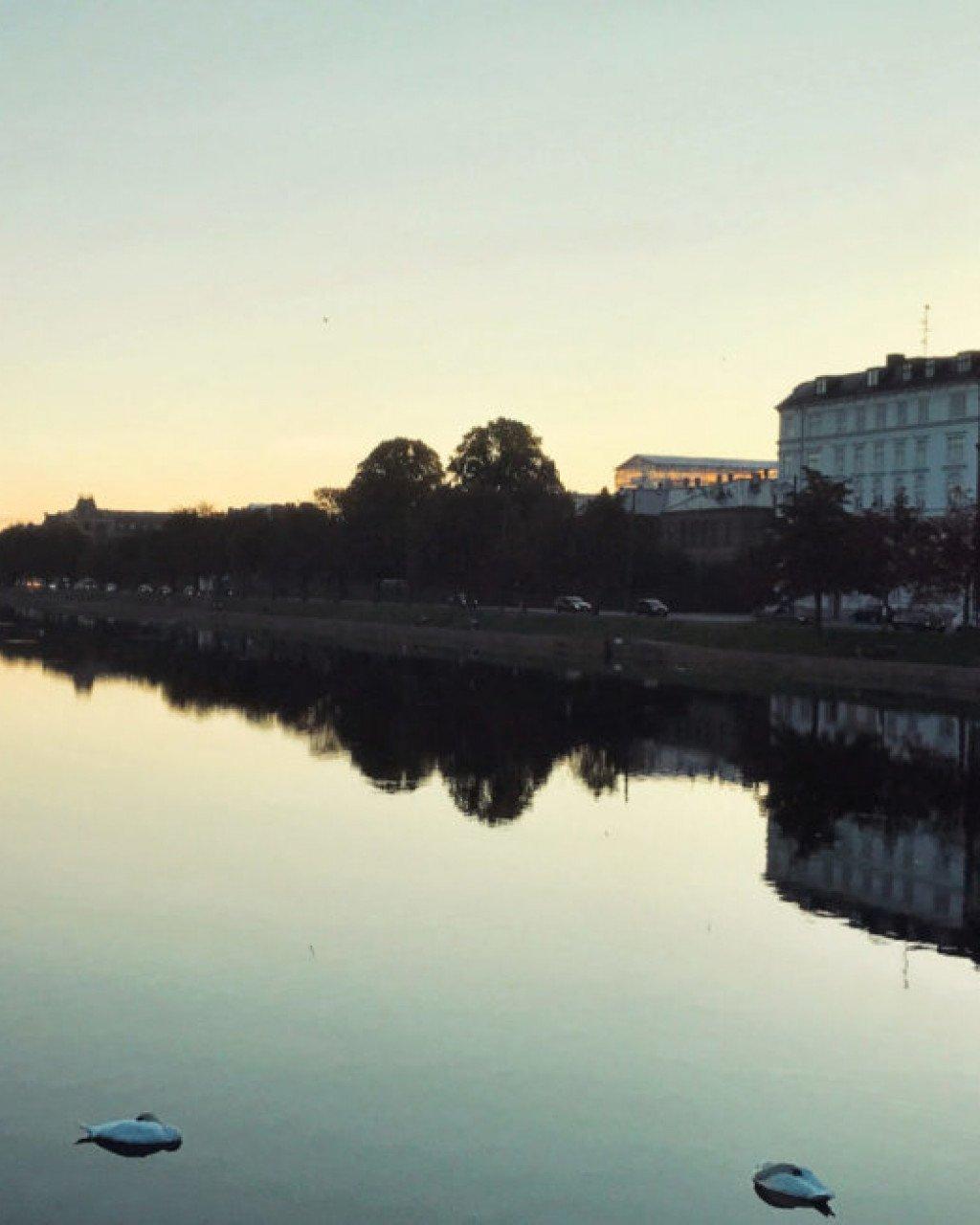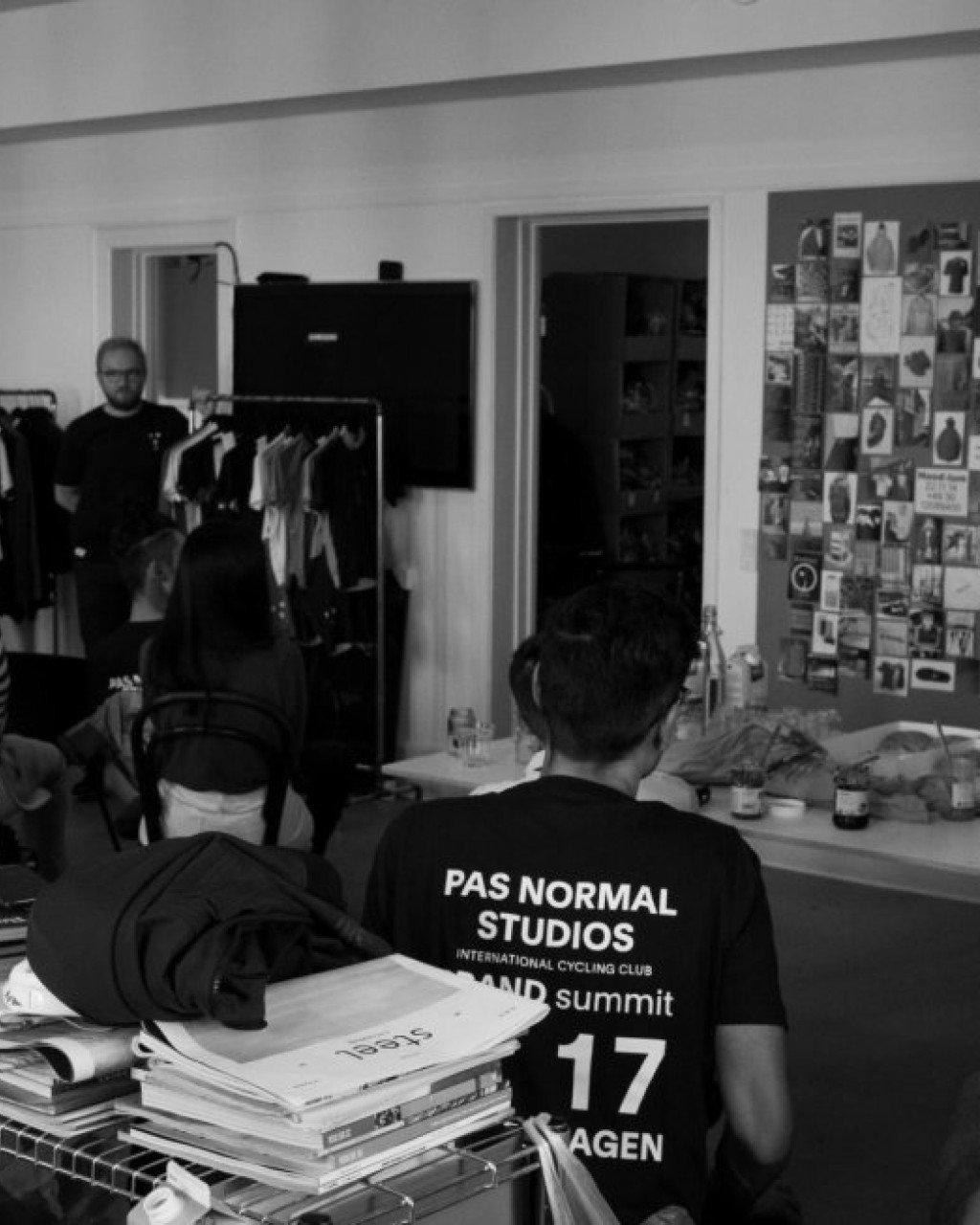Meet the Man Who Goes by TKO
A Danish Original
INTERVIEW WITH KARL-OSKAR OLSEN
Meet the Man Who Goes by TKO
A Danish Original
INTERVIEW WITH KARL-OSKAR OLSEN
Pas Normal. For the Anglophones, it's French. No, it's not “Paz Normul", it's “Pah Norm-all". And again, for the Anglophones, if the translation didn't come through, it means “not normal". Originally a jibe at Lance Armstrong's descriptions of fellow dopers (as told in Tyler Hamilton's “The Secret Race") splayed on Wood Wood t-shirts, it evolved into a brand of its own and the mantra of a nascent cycling brand from Copenhagen, the cross-language eponymous Pas Normal Studios.
The design house is as much a product of its environ as it is its people. Copenhagen is a special place for a cyclist, especially for someone coming from a country where cycling in all forms is at best outlier, at worst outlaw. To say that the Danish capital has an affinity for bicycles is an understatement at best. For an outsider, seeing the 8:00 AM commute on Nørrebrogade is astonishing. Thousands of people of diverse backgrounds on bikes, filtering their way into the city's central business district. Infrastructure is designed around cycling as the primary modality of transit, and the mentality percolates. Even the most rudimentary of commuters can handle themselves in a pack, and it seems most folks are gracefully full-gas anytime they're in the saddle. In Denmark, bicycles – and bicycling – are oddly normal, an amusing juxtaposition to Pas Normal Studios' moniker.
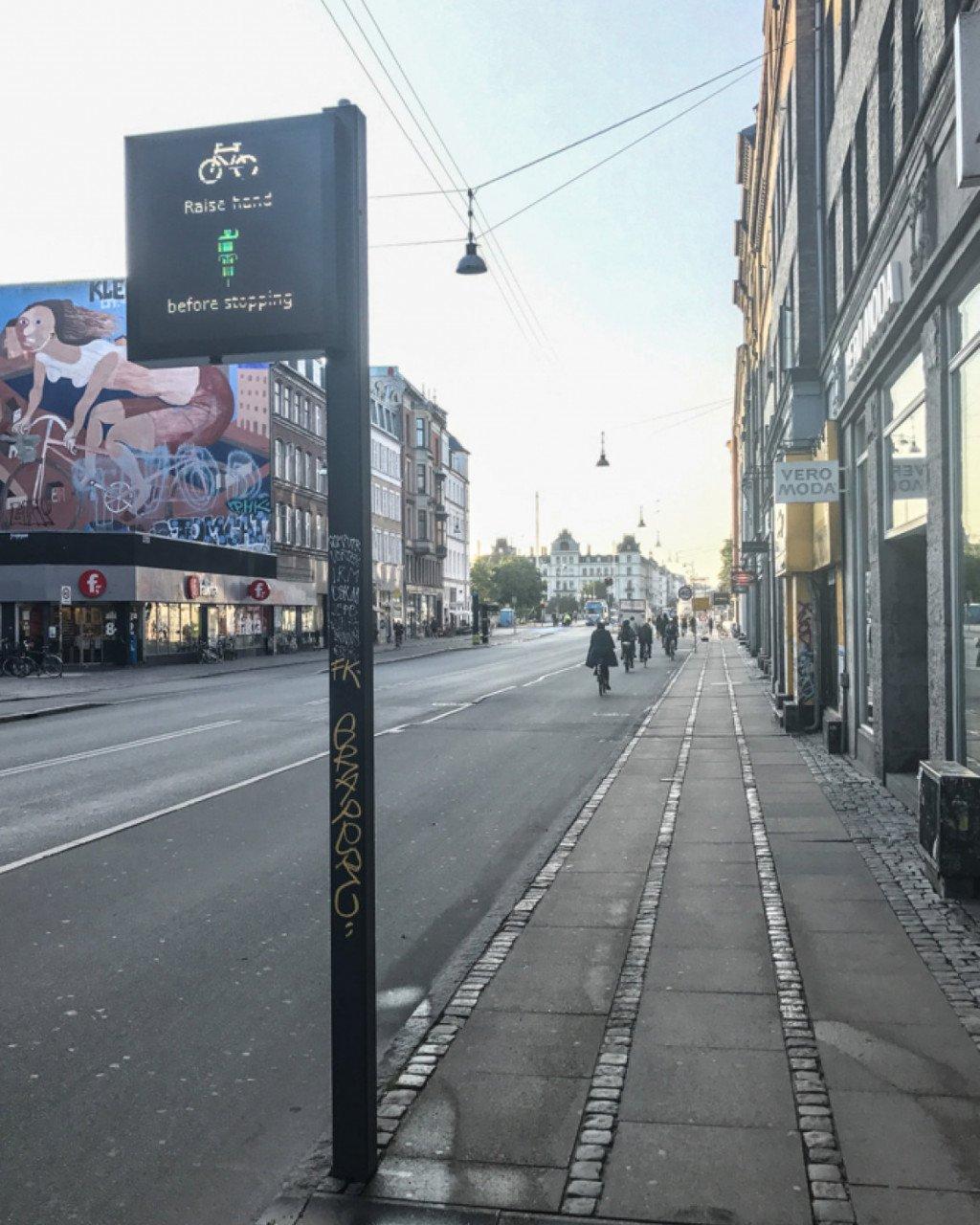
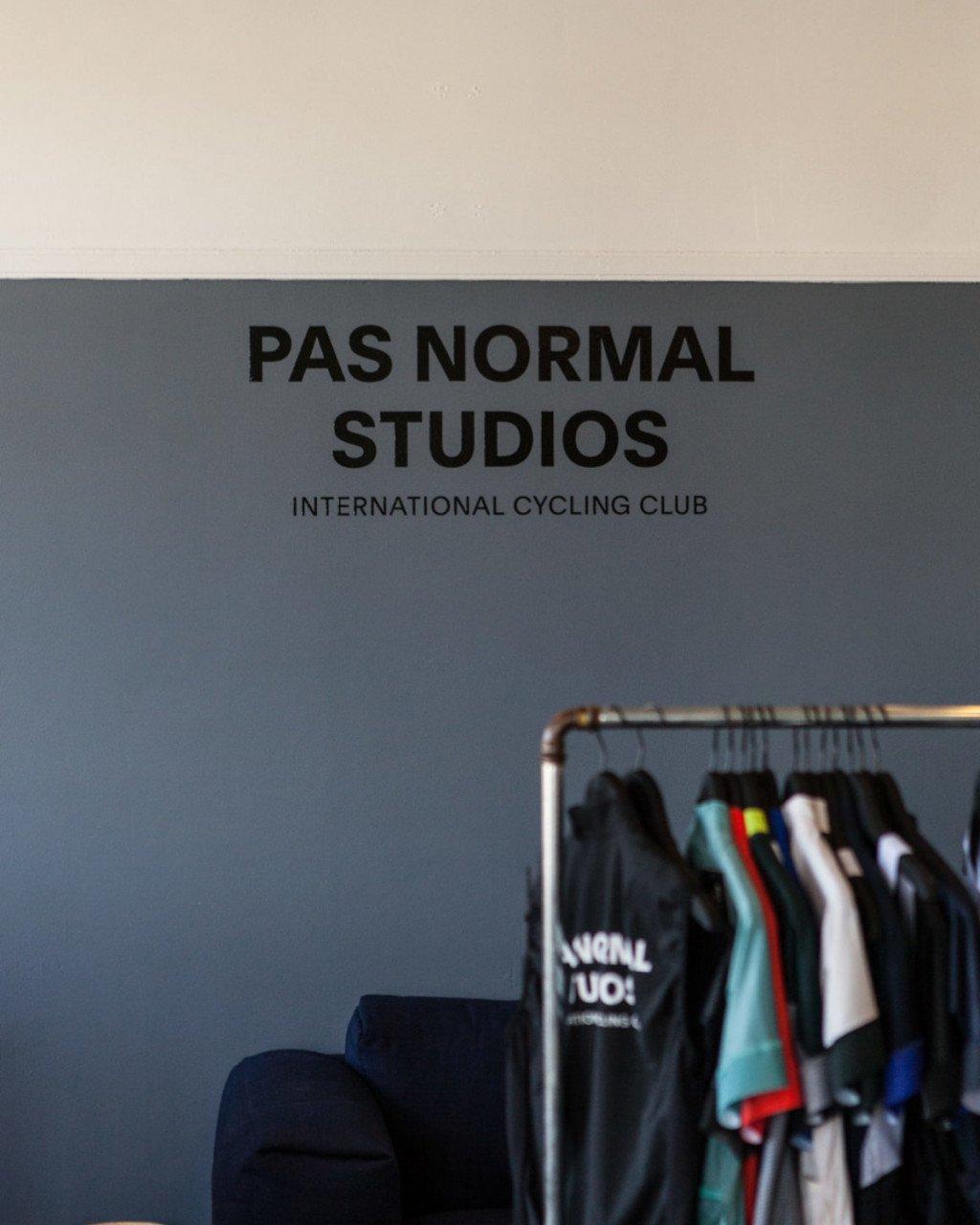
Pas Normal Studios is, like most good things that happen in the world, something of an accident. And, like most good things, it started as an inside joke between friends, four of them, to be precise. One of those friends? Karl-Oskar Olsen, the Danish fashion designer behind the internationally-acclaimed and aforementioned Wood Wood brand. Karl-Oskar, also known by his birth initials, TKO (oft-referenced in PNS designs), is a man of contrast. At first glance, you wouldn't guess he's a cyclist. Scandinavian rock star? Perhaps. Tattooed, tall, and built more like a hockey player than a bike rider, his passion for riding hard comes out in the bunch. Sprint point? You can always count on TKO to go for it, especially from a long way out. It translates well to most of what Karl-Oskar does, an affable man who doesn't seem to believe in doing things halfway. When we were recently in Copenhagen for Pas Normal's annual brand summit, we had the enviable chance to sit down and chat with his motivations – and inspirations.
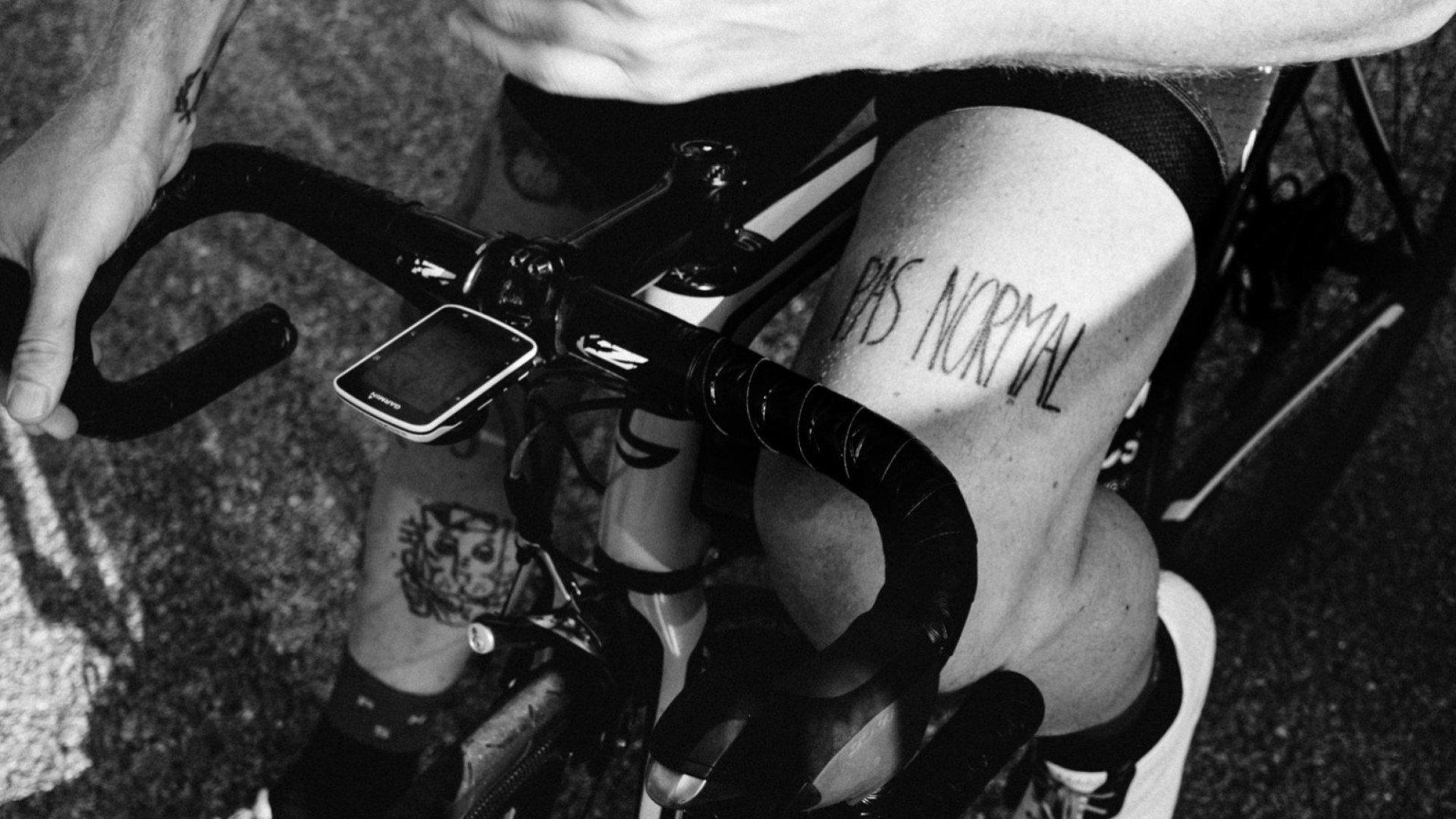
AC: Starting with the basics. Where's your favorite place to ride?
TKO: Lucca, Italy, around Tuscany.
AC: What inspired your start as a designer?
TKO: In my youth, I was attracted to sub-cultures like skateboarding and graffiti, and just like many other independent lifestyle cultures you have your dress code. Back then, streetwear was in its early days, everyone was very creative to accomplish a cool look. You couldn't just buy into a look, you had to create it yourself, it was all very analog. I wanted to work with this concept on a higher level, so naturally, I pursued it. In 2002, I completed my MAA from the Royal Danish Academy of Fine Arts.
AC: What's the origin of Pas Normal? How did the brand come into existence, and why the name?
TKO: It was a graphic I used in my other label, Wood Wood, on a t-shirt back in 2014 with a reference to Lance Armstrong. We had a couple of other cycling references in that collection, like an “Hors Catégorie" t-shirt. One year later I co-founded PNS with Peter Madsen, Tommy Pedersen, and Brian Nygaard, and I suggested the name Pas Normal Studios. Pas Normal was no longer a reference to Lance but meant as a description of how we see ourselves in the cycling industry. Not Normal, less ordinary. I thought it really made sense. The “Studios" part is to build an extra layer of creativity and to add a contemporary/modern take on what we reflect throughout all we create. It visualizes something new and fresh within the cycling industry. I believe it speaks very directly to our consumers.
AC: Who are the biggest aesthetic influences in your design work? Are there any particular pieces that jolted an epiphany for you?
TKO: I think we have a very classically Scandinavian way of thinking about design. It's very subtle and simple, yet with distinct detail or a concept. With that said, my personal source and inspiration come from Bauhaus, particularly Le Corbusier and Mies van der Rohe. It can't be too stiff or conceptual, it needs a certain balance. I see my style more as a hybrid between something very classically “less is more" combined with a more contemporary and innovative style. Above all, I just try to reflect the time and society we live in and make stuff I'd wear myself.
AC: How does music have a big impact on your vision and work? Any styles that tend to dominate your process?
TKO: Music and certain musicians have a great impact on my design process, and can be an endless source of inspiration. When I design I listen to music most of the time, and it gets my mind to places I wouldn't possibly be able to explore without listening. I use it as a tool when creating, and occasionally I use specific references in the apparel, like Road to Nowhere, an homage to Talking Heads.
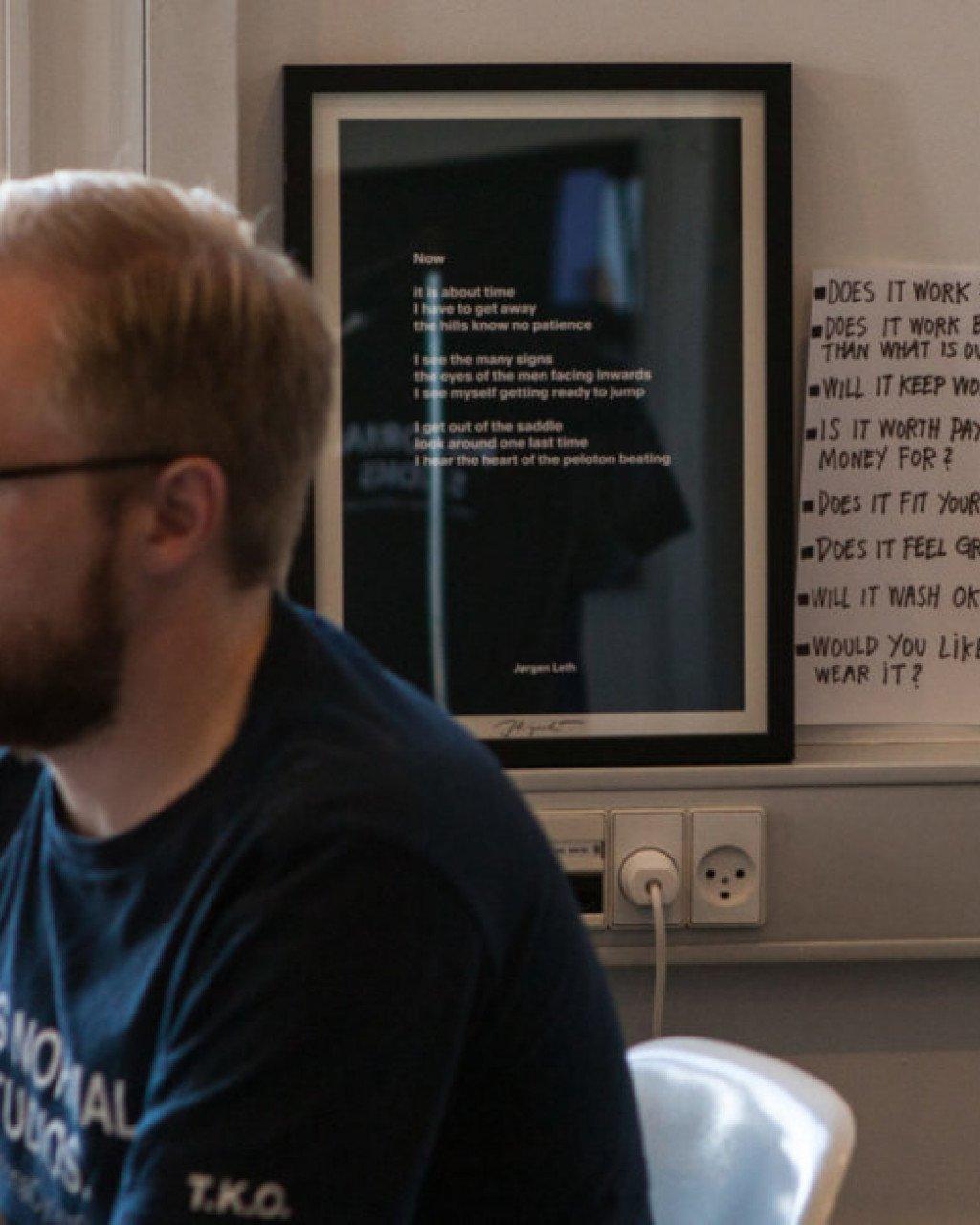
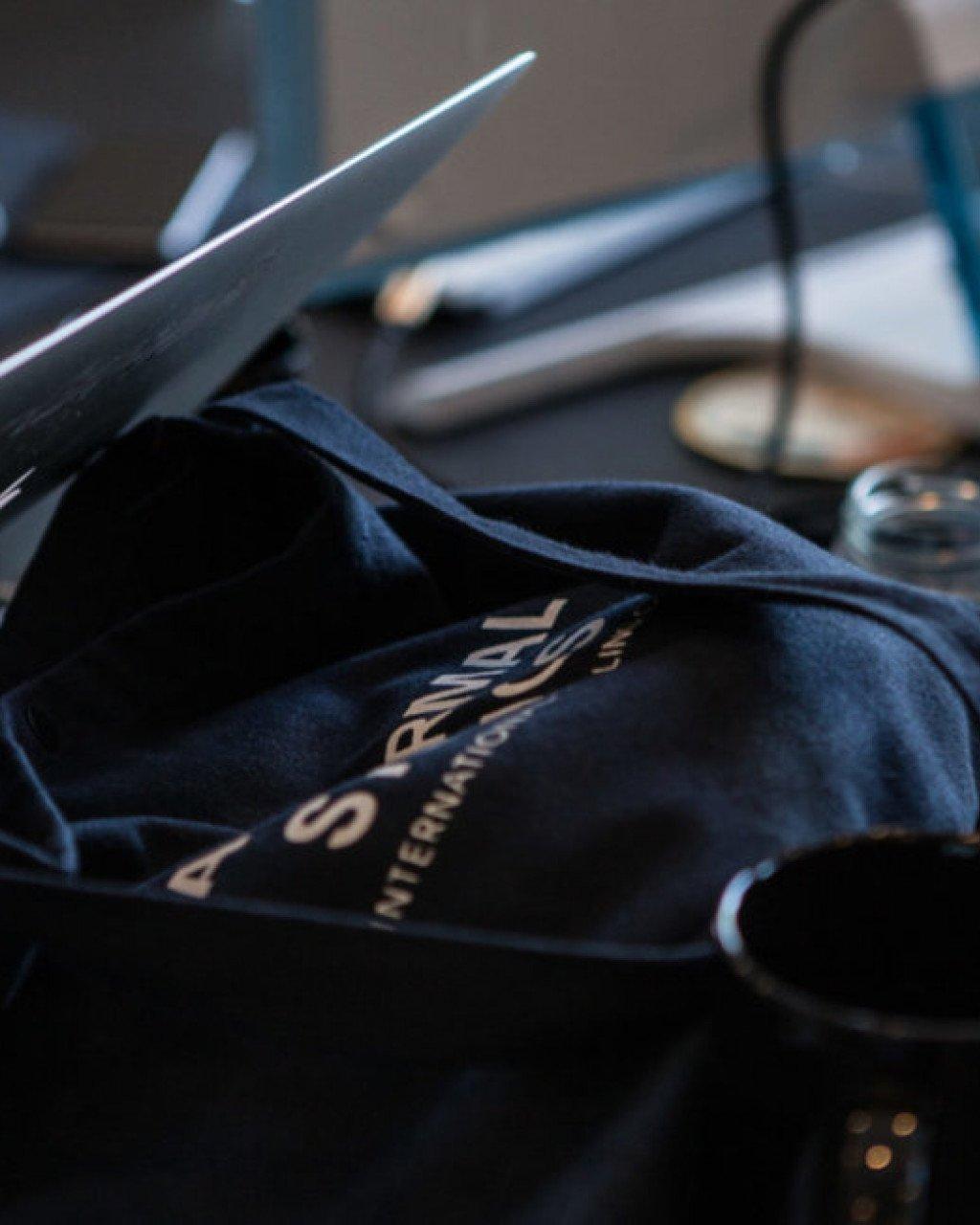
AC: How do you translate fashion and real-world design to something like cycling wear? What kind of obstacles do you run into?
TKO: Part of the big idea behind Pas Normal Studios is to bring something modern and contemporary to cycling wear and to reflect trends from the fashion world that make sense to bring over. When we started out, I felt that there were only two alternatives if you were looking for a new kit, either a retro look, or you went more towards the sports performance look, and none of them spoke to me. It felt like running apparel was onto something cool, using colors and details from high fashion that lent a hybrid look. Being an eager cyclist myself, and at the same time creative director and designer at Wood Wood, I wanted to make cycling clothes that made you feel like you were wearing a tailored suit. Made you feel special, and at the same time reflected the color palette of today and tomorrow. Pas Normal Studios is still so young, but evolving faster than we would have imagined. The range will go deeper over the coming seasons, and surely while we grow, new opportunities will arise. We strive to make the best possible product balanced between function and style, and our ambition is to be a leading player in the industry.
AC: What have been some of your biggest failures as a designer?
TKO: When I listen to the sales department more than my own intuition. It happens from time to time.
AC: Does Danish cycling culture – specifically, the city biking in Copenhagen – have a lot to do with what you make? Do you think you'd be doing the same thing if you were born in the United States?
TKO: Hmm, good question. I think yes, I would for sure have done the same thing. Coming from Copenhagen and Denmark has had a definitive effect on my expression, but that might have been the only difference to if I'd been born in the US. It could have been done from the US, or even Asia.
AC: Are there any other cycling-specific companies you particularly admire or look up to?
TKO: Most of the big cycling companies have created good pieces throughout the years. When I was young I was hooked on Castelli. Now, to be honest, I don't really follow other cycling brands. People who know me can attest to this, I'm not into bikes either. I just ride them. When I design I look more towards architecture, art, music, fashion, and I get my sports apparel fix from functional outerwear brands from running and football.
AC: When you were 17 years old, what did you want to do with your life?
TKO: I wanted to become an architect or an artist, creating sculptural works along with classical painting.
AC: Finally, where's your least favorite place to ride?
TKO: In a spinning room.
